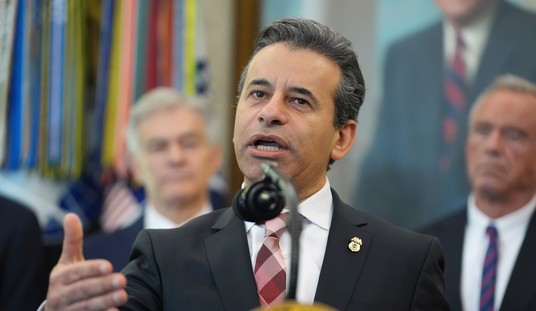President Barack Obama is in what in baseball slang would be considered “a pickle” when it comes to how he should be responding to the extraordinary events occurring in Iran.
The correct sports terminology is actually “rundown” — an equally descriptive idiom to describe a situation where a runner is caught between two bases while the fielders run him first one direction and then the other as they try to tag him out.
Watching a runner trying to escape a “pickle” is considered one of the most humorous moments in a ballgame as it can be very entertaining to watch the poor guy in the middle, schlepping back and forth while trying to avoid the inevitable tag. Since most rundowns occur because of stupid baserunning, the unfortunate participant is usually razzed by players and fans all the way back to the dugout, where the manager glares at him and his teammates pretend not to notice him.
Carrying the baseball analogy forward, our president has been caught in a rundown on Iran between advisors who are telling him that anything he says to support the demonstrators will be used by the regime as an excuse to crack down on the reformers, and those advisors who want him to speak out forcefully in favor of the aspirations of the Iranian people embodied in the protestors’ demands.
It must be pointed out that our president is in an extremely delicate and sensitive diplomatic situation. An excellent case can be made for both schools of thought in his administration, and throwing politics and ideology in the mix from the outside is like tossing a lit match into a gasoline dump. In the end, he can only please one side in the debate, and he has chosen the more cautious approach — for the time being.
Indeed, after starting out by congratulating the regime for carrying out a “robust debate” in the lead-up to the election, the president made it plain that he would accept whoever emerged from the post-election scrum in order to continue his outreach to the Iranian government. Even in Saturday’s statement regarding the violent crackdown by authorities, rather than directly and forcefully coming down on the side of the good guys in the streets, the president concentrated on chiding the regime for using force to suppress the demonstrators. He also called on the Ahmadinejad government to “respect the dignity of its own people and govern through consent, not coercion.”
A tepid response to the horrific actions of the Iranian government? Of course it was. And the underlying reason for this milquetoast rhetoric is more problematic still: the hope of the administration that they can sit down with the Iranian theocracy and convince them to abandon their nuclear ambitions. The belief that there is little the president can say to influence the regime’s treatments of the reformers anyway and that ratcheting down the criticism will earn them points with the thugs who are ordering their children to be beaten like animals in the streets seems to have won out over any ringing declaration of support for the demonstrators.
But the president is not just playing to an American or an Iranian audience. Also watching what we do and listening closely are Russia and China, who not only have extensive commercial ties with Iran, but also share our deep concerns about the Iranians’ nuclear enrichment program — or at least, they have been assuring us for years that this is the case. Both nations have cooperated at the UN in imposing sanctions on Iran for defying the will of the Security Council to open their nuclear program to full inspection. Both nations’ help will be vital if we are to convince the Iranians to abandon their enrichment program or, at the very least, subject the program to a stringent inspection regime that will assure the Israelis, and us, that they are not building a nuclear weapon.
The alternative is a potential catastrophic war, the consequences of which can only dimly be perceived. Considering the enormous problems Iran could cause the United States and our vital interests in the Middle East, it behooves the president to use every means available to solve the Iranian nuclear problem without resorting to force.
But must he do this while seeming to abandon the demonstrators in the streets of Tehran?
The aftermath of the Tiananmen Square massacre of 1989 by the Chinese government and the response by the administration of George H.W. Bush to the uprising is instructive. Then, as now, Congress and many conservatives wanted the president to speak out more forcefully for the demonstrators and condemn the government responsible for the crackdown more vigorously.
Interestingly, the response of Bush to the crackdown in Tiananmen Square sounds an awful lot like Obama’s measured tones in talking about Tehran:
Bush declared that he deeply deplored “the decision to use force against peaceful demonstrators and the consequent loss of life.” He omitted, however, any direct criticism of individual Chinese leaders. Secretary of State James Baker suggested “it would appear that there maybe was some violence on both sides” and emphasized that the U.S. did not want to interfere in the internal political affairs of China.
Later, as congressional pressure built, Bush’s rhetoric and actions changed slightly. Mild sanctions were imposed but the administration hastened to assure the Chinese government that the fundamental relationship would continue to progress.
Barack Obama has also decided not to name names; a desire not to interfere in the internal affairs of another country was paramount in his response. It remains to be seen whether his rhetoric will escalate along with the violence but it is equally clear he wants to continue his so far futile outreach to the Iranian government.
Both administrations represent a “realist” point of view where ethical considerations are set aside in favor of doing what is best for the long-term interests of the United States. It is hard to find fault with this position, because the presidency is an office where the occupant is keenly aware of taking actions that may affect a successor.
It is being argued that it is times like this when realpolitik must take a back seat to the moral choice of coming down firmly on the side of the demonstrators while lashing out at the Iranian thugs who ordered the crackdown and probably stole the election.
Then what? This is the question faced by both Bush #41 and Obama, their hearts undoubtedly with the protestors. The desire to speak in less than measured language to the brutal governments suppressing the legitimate aspirations of their populations was very tempting. For George Bush, the decision was made to swallow any harsh criticism of the Chinese government in favor of some token wrist slapping and almost worthless sanctions. One could argue that this policy eventually paid dividends in that our strategic relationship with China is perhaps the most important part of our foreign policy today.
Barack Obama has decided that it is more prudent to try and talk with the Iranians, attempting to get them to forgo a nuclear enrichment program instead of bombing that program out of existence. We may see the folly of that policy and determine that the president’s wrong-headed approach is actually more of a danger to our interests than trying to destroy the Iranian nuclear shop. But if that is the goal of the president’s Iran policy — engagement — he is saying as much as he can, as forcefully as he can, in that given context.
It won’t be enough for many — especially those who do not have the responsibility for speaking for the country in times of crisis. And the president’s critics may yet be proven correct, given what we know of the nature of the Iranian regime and their steadfast refusal to give up their potential bomb-making nuclear program.
But when the stakes are this high — not just for the Iranian demonstrators but for the U.S., the Israelis, the region, and the world — I am willing to cut the president a little slack and recognize that while we all want him to say what is in our hearts about freedom and justice, his response so far has been about as good as we can expect.










Join the conversation as a VIP Member